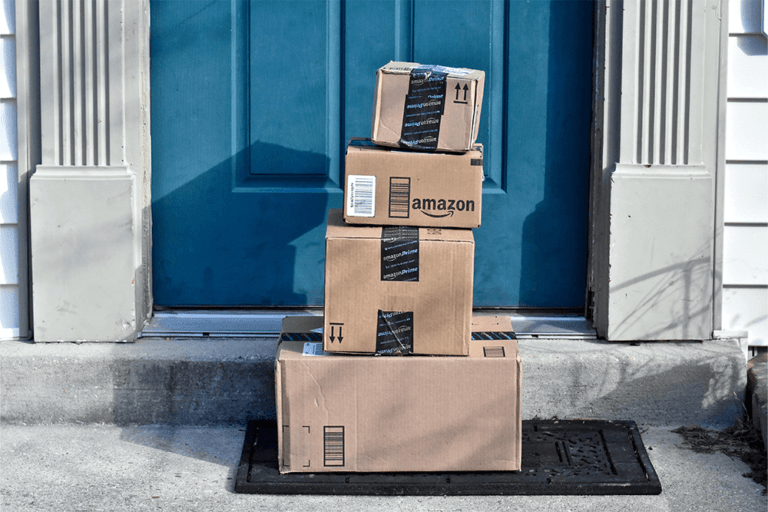Photo courtesy DepositPhotos.
The organic food market continues to expand despite a higher price tag compared to conventional foods. The sector is expected to grow by $310 billion U.S. dollars from 2022 to 2027, an increase of nearly 16% per year, according to a 2023 Technavio report.
Some experts disagree that organic foods provide increased health benefits, prompting the question, is it worth paying higher prices for organic foods, especially during a time of significant inflation?
The Higher Cost of Organic Foods and Beverages
When checking the price tags at a grocery store, it’s clear that organic food usually comes at an increased cost. Farmers cite higher production costs associated with organic crops. Growing foods without genetically modified organisms or pesticides involves more labor-intensive methods, increased certification costs, and costly environmentally sustainable practices.
In 2023, the organic food and beverage market grew by 9.25%. Organic foods are estimated to cost roughly 21% more than their conventional counterparts. For example, Amazon Fresh offers chicken breast for $4.79 per pound, while organic chicken breast is $10.99 per pound.
With this price discrepancy, a fun meal like chicken kabobs or chicken tandoori can go from a simple, affordable dish to an inaccessible delicacy for most families on a budget. Some people who value pesticide-free food have started turning to more affordable vegetarian protein sources, including lentils, beans, or eggs.
If you exclude meat, organics are only estimated to be 10% more expensive. One pound of organic carrots on Amazon Fresh is $1.49, while non-organic is $0.99.
Market data shows that, for many consumers, organic products are worth the extra cost.
Potential Benefits of Organic Food
Why do people choose to pay more for organic foods? More and more consumers are concerned about the environment and their health. Many consumers opt to steer clear of pesticides for health concerns and environmental impacts.
Some studies show a link between high-dose pesticide exposure and Parkinson’s, Alzheimer’s, and multiple types of cancer. In some cases, pesticides have contaminated soil and groundwater and damaged wildlife.
“Opting for organic amidst the price differential is a mindful choice I make. It’s an investment in my health and the environment’s well-being. Every bite becomes a conscious contribution to sustainability and a testament to my commitment to cleaner, pesticide-free produce.” says John Dealbreuin, owner of Financial Freedom Countdown.
Organic Accessibility Concerns
Organic accessibility to various demographics remains a controversial discussion within the cost-benefit debate. Critics raise concerns about disparities in food quality based on economic conditions, making organics out of reach for many low-income families.
Supporters of organics point out that higher demand has brought more national grocery chains onto the bandwagon, bringing the price down and increasing availability. The recent acceptance of electronic benefit transfer (EBT) cards at farmer’s markets has opened the door for more local organic produce to be sold to low-income households.
Consumers Choose Organics Despite a Limited Budget
Although organic costs are higher, some consumers have creative ways to work around this. Karen Kelly, a health coach from Seasonal Cravings, says, “I always buy organic apples and berries. I can’t afford to buy all organic, so I use the Environmental Working Group’s list of dirty dozen to pick the most contaminated. My kids eat a lot of apples, so I want to make sure those are clean. Luckily I can get organic apples and berries at my local supermarkets.”
Anna Chesley, a small farmer and owner of Salt in My Coffee, is motivated by keeping her children healthy, “…I stretch my tiny food budget to make organic choices for my family by utilizing our local farmer’s markets, signing up for a [community supported agriculture] CSA [box], growing and canning some [of] our own fruits and vegetables, and even raising much of our own meat here on our little two-acre homestead…when I think about the chemicals I’m keeping out of my children’s bodies, it’s absolutely worth it!”
Nutritional Value and Safety of Non-Organic Produce
Others disagree that organic foods are worth the extra cost. The U.S. Food and Drug Administration (FDA) and the Environmental Protection Agency (EPA) say crops sprayed with pesticides are safe for human consumption. These regulatory bodies work together to determine the legal limit of pesticides deemed safe for human consumption.
Some say eating fruits and vegetables is essential, regardless of whether they’re organic. Registered Dietitian Alex Caspero at Delish Knowledge says, “Many people believe that organic foods are more nutritious than conventional foods, though research to support this claim is lacking. While some studies have shown a higher content of certain nutrients, such as vitamin C and phytochemicals, in organically grown produce, other studies have shown no difference in nutrient content.”
Caspero explains that organic-only messaging could potentially harm the public. “The CDC reports that 1 in 10 Americans doesn’t consume the recommended amount of fruits and vegetables daily. As research does not suggest direct health benefits of consuming organic foods over conventional, families can feel good knowing that their conventional produce purchases are safe and nutritious for their family.”
This article was produced by Healy Eats Real and syndicated by Wealth of Geeks.
This content was originally published here.



















